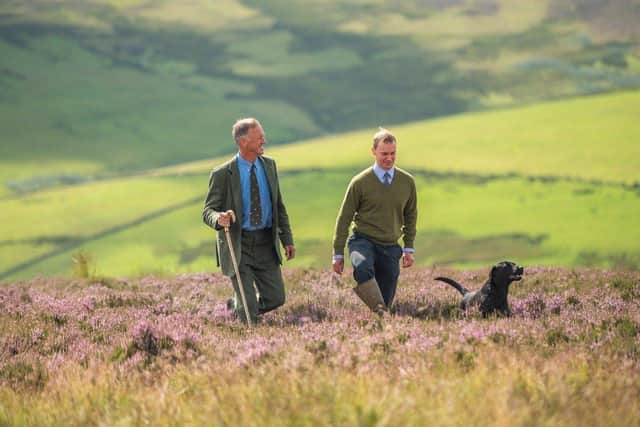Think about holistic nature of 'sustainability' before making your mind up on grouse shooting, says report
Critics of grouse shooting need to understand the holistic nature of “sustainability” before advocating for the practice to be banned, a new report has said.
The study was written by professor Simon Denny, formerly of the University of Northampton and reviewed by professor Hames Crabbe from the University of Oxford before being peer reviewed by academics based at three UK universities.
Advertisement
Hide AdAdvertisement
Hide AdThe report takes the International Union of Conservation of Nature’s (IUCN) definition of sustainable which incorporates three factors: economic, environmental and social.
The authors argue grouse shooting is not an isolated activity as a means for profit, but instead a complex system of “integrated moorland management” which results in environmental, economic, and social benefits.
They said discussions about the future of driven grouse shooting have centred “almost exclusively” on whether the practice is environmentally sustainable, and that there is “depressingly little attempt made by researchers to consider the economic or social sustainability of driven grouse shooting compared with alternative management regimes for moorland.”
"Legislation and regulation almost completely ignore economic and social sustainability,” the report said.


The economic, environment and social benefits cited include employment and housing, engagement with contractors, shooting estates accounting for 29 per cent of upland Sites of Special Scientific Interest (SSSI) because of the flora and fauna, predation control benefitting rare ground-nesting birds, and work on the moorlands maintaining a sense of community.
The report goes on to list eight headline points against grouse shooting which include: it’s not economically viable and there are better alternative uses for moorland such as tourism and forestry; the illegal killing raptors; opposition to predator control, and the killing of mountain hares.
But the authors claim each argument is “individually contradicted by the evidence available.”
For example, the research says “the only place in the British Isles where mountain hares thrive at the uniquely high densities associated with the UK is on grouse moors.”
Advertisement
Hide AdAdvertisement
Hide AdThey also said moorland management results in more positive outcomes for people and nature “than any alternative uses.”
“To date there has been no attempt to define, let alone measure, the economic sustainability of the alternative uses of moorland using a similar holistic economic model,” the report said.
Commonly cited alternatives include livestock grazing, commercial forestry, renewable energy, rewilding, tourism, and conservation.
It added: “This absence of evidence is a glaring omission in any evidence-based discussion on the optimal ways in which moorland can be managed.”
The report comes after a study by the Game Wildlife and Conservation Trust found grouse moor management is helping slow curlew decline, a bird with “near-threatened” status.
The RSPB said it accepted legal predator control can play a role in curlew recovery, but added other factors such as habitat quality and new woodland siting and design are important considerations.
Comments
Want to join the conversation? Please or to comment on this article.
